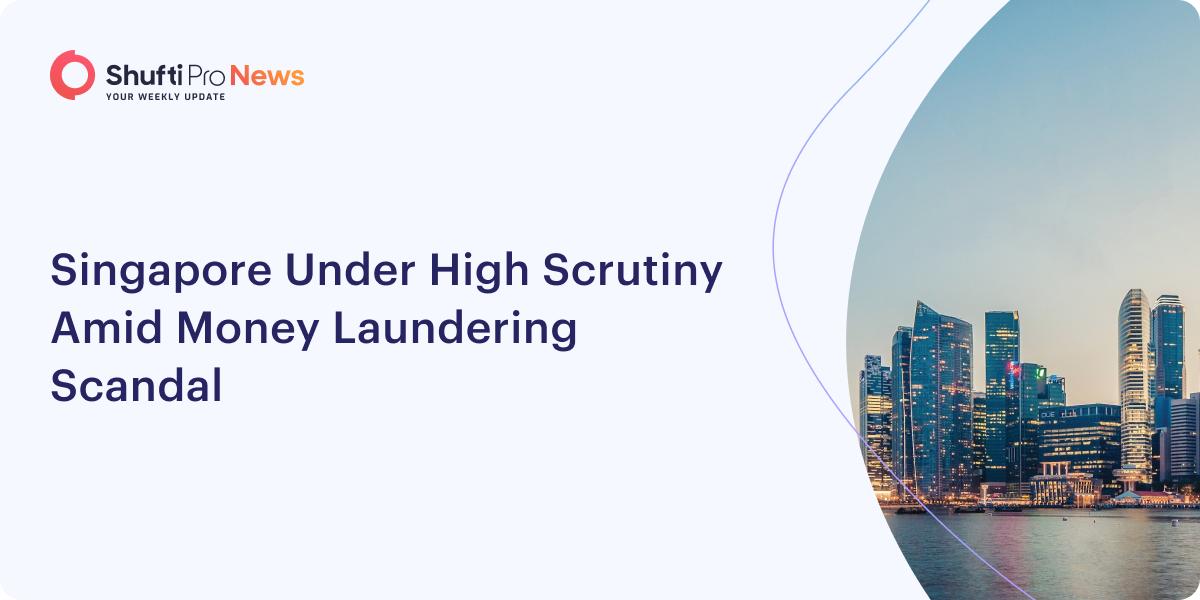Singapore Under High Scrutiny Amid Money Laundering Scandal

Singapore, an immaculate business hub, is under fire for one of the largest money laundering cases, which resulted in the arrest of 10 people and confiscation of assets valued at $1.8 billion Singaporean dollars.
Last month, Singapore police detained 10 foreign citizens aged 31 to 44, originally from Fuji, China, Cypriot, Turkey, Cambodia, and Vanutan, after seizing assets totalling $1.3 billion, including luxury goods. According to the Singapore Police Force, the confiscated assets included the ill-gotten gains of international organised crime, including forgeries and online gambling, the proceeds of which were transported into Singapore and routed via the country’s financial institutions.
According to researchers, the Southeast Asian city-state can be an appealing alternative for money launderers due to its reputation as a prominent financial hub offering a variety of financial instruments. A senior research fellow at the Institute of Policy Studies at the National University of Singapore (NUS), Woo Jun Jie, stated, “The large volumes of financial transactions that flow through our borders can make it harder for regulators to sift out illicit transactions.”
Mak Yuen Teen, a business expert at NUS Business School, said, “Money laundering cases frequently involve entities like the British Virgin Islands and other tax haven countries whose ultimate beneficial owners remain unknown.” He further added, “My worry is that the rabbit hole goes really deep and wide.”
Teen mentioned that banks are responsible for doing extensive due diligence on their customers and reporting suspicious transactions. However, there may still be room for improvement. He added, “Where there are breaches, the penalties imposed are generally quite low, and there is no little accountability for those in the board and senior management. This may encourage a culture that puts profits before ethics and compliance.”
The Global Investors Programme (GIP) has also attracted wealthy foreigners, which provides investors with a fast road to permanent residency in Singapore, although the GIP has lately tightened its criteria. According to Ku Swee Yong, one of the GIP directors, the government’s attempt to entice the super-rich may have led “all and sundry to come in.” He added, “Because Singapore’s image has been built very well over the last five decades, people may see this money laundering case as a one-off instead of dealing with what could be a broader, system-wide issue.”
The Monetary Authority Singapore (MAS) has been working on COSMIC, a digital platform that will allow financial institutions to securely communicate information on consumers who exhibit several “red flags” and suggest “potential financial crimes.” According to Victoria Ting, associate director at Setia Law, whilst it is too early to know who the Ultimate Beneficial Owner (UBO) may be associated with in the latest money laundering case, Singapore’s regulatory structure is still firm. She further added that Singapore has a “high level of adherence” to FATF recommendations and ranks highly in numerous independent AML rankings.
Ting stated that the case illustrated Singapore’s effectiveness in dealing with suspicious transactions. Ting further elaborated, “To pull off a raid of this scale, with a considerable degree of success both in terms of persons apprehended and assets seized, demonstrates the competence and sophistication of law enforcement here.”
Undoubtedly, Singapore’s regulatory bodies have “historically” shown an unwavering stand against non-compliant organisations and further plan to adhere to the regulations to completely eliminate money laundering and illicit activities from the country.
Suggested Reads:
SINGAPORE SCAMMERS LAUNDER MONEY THROUGH ONLINE GAMBLING
TWO OF SINGAPORE’S BANKING GIANTS INVOLVED IN BILLION-DOLLAR MONEY LAUNDERING CASE
30 SWISS BANKS FAILED MONEY LAUNDERING REGULATORY ANALYSIS TEST











